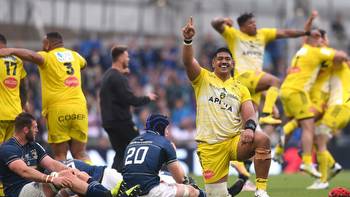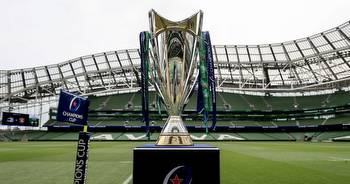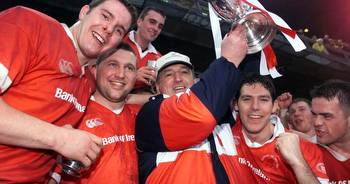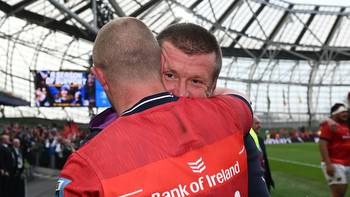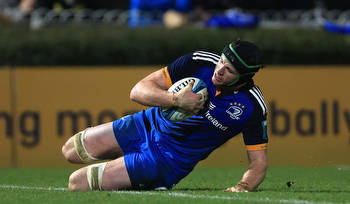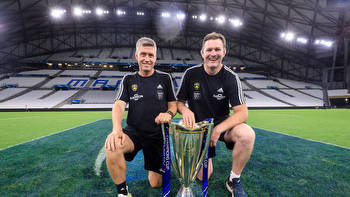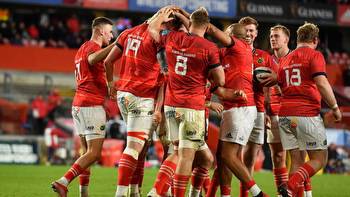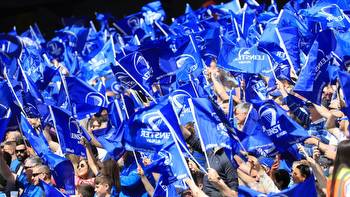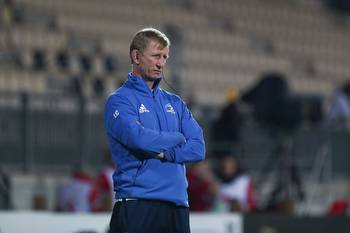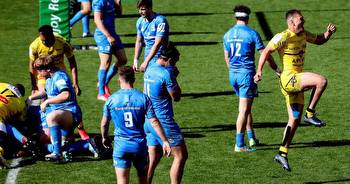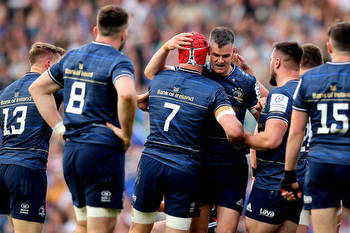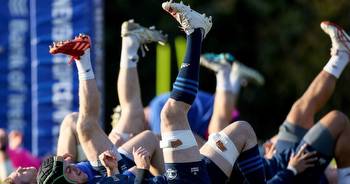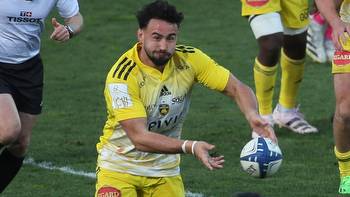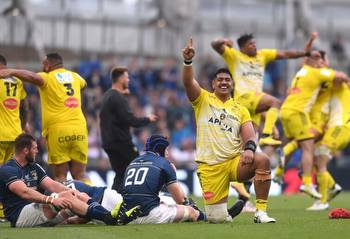Warren Gatland column: I've never told this story about Ronan O'Gara before
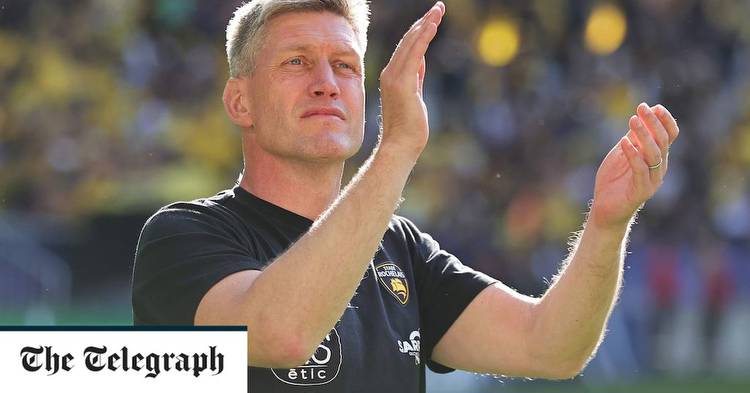
I have never told this story before, but Ronan O’Gara once played a key role in stopping me from resigning during a Six Nations match, when I was head coach of Ireland.
It was back in February 2000, and following a 50-18 defeat by England at Twickenham, I had decided to ring the changes for our next game against Scotland at Lansdowne Road.
I was under mounting pressure. Ireland had lost 28–24 to Argentina in the 1999 World Cup quarter-final play-offs in Lens. It was a game we should have won. We had dominated the contest but missed several opportunities and felt we had a few tough calls against us.
I had stuck with the senior players for our first game of the Six Nations at Twickenham and although we performed better than the score line suggested, I knew it was time to take a risk by starting five new caps, the Munster trio of O’Gara, Peter Stringer and John Hayes, along with Llanelli flanker Simon Easterby and Leinster's Shane Horgan.
I also recalled Denis Hickie and Girvan Dempsey and the Munster warhorse Mick Galwey, who famously put his arms around O’Gara and Stringer like a proud father during the anthems.
The introduction of the young guns would mark the evolution of what became known as Ireland’s 'golden generation' that played with distinction for the next decade. But it was far from an auspicious start.
In fact, when Scotland raced to a 10-0 lead after a penalty and converted try by Kenny Logan after just 18 minutes, I had already decided to quit at the end of the game.
I remember thinking as I sat in the stand beside my assistant Eddie O’Sullivan and team manager Donal Lenihan: “This is it; I am going to resign at the end of this.”
It was one of the lowest moments of my coaching career, sitting there feeling a sense of helplessness as the game, and my Ireland tenure appeared to be slipping away from me.
But O’Gara thankfully was unaware of the mental torment his head coach was experiencing.
Despite Scotland’s blitzkrieg start, he masterminded a brilliant comeback that would see us canter to a famous 44-22 victory, and the manner of the performance pulled me back from the brink. In the end I did not breathe a word of my resignation thoughts until now.
What O’Gara and his Munster team-mates brought at the time was a mental toughness despite their inexperience. Leinster may have had more skilful players but the Munster boys knew how to win games.
And what I learned from it was that it was important to have players who played with that fire, passion, and never-say-die attitude, even if they were not always the best players.
When you are talking about 10s, ROG may not have been the greatest runner of the ball, but in terms of being able to control a game, he was outstanding for Munster and Ireland.
He was a player stacked with self-belief and equally as critically was a fighter. It was a mental fortitude that would see him win huge matches by delivering in critical moments, with dropped goals, penalties or turning the screw by kicking his forwards into the corners. He was very demanding of what he wanted and demanding of the players around him too and his competitiveness is equally as evidenced now in his coaching which has clearly rubbed off on his La Rochelle players.
That edge has sometimes got him into trouble at times with opposition coaches and officials in France because he speaks his mind and can get quite emotional at times. I know there are certain lines that we must not cross as coaches, but I have always seen that desperation to win as a positive. It shows how much it means to him and what a competitive animal he is.
Working with him again on the 2009 Lions tour, it was obvious he would go on to become a coach. He might have had a tough time after he gave away the decisive penalty in our second Test defeat by South Africa in Pretoria, he afterwards admitted he had got his timing wrong, but by then he had become incredibly knowledgeable about the game.
He has also not been afraid to go out of his comfort zone by gaining coaching experience outside of Ireland and the UK, first at Racing 92 and then with the Crusaders in New Zealand as a defence coach.
Now he is excelling with La Rochelle, again in a foreign environment when it might have been easier to return to Ireland to coach Munster. Having won the Champions’ Cup final against Leinster last year, and beaten them in the semi-final in 2021, I am certain ROG will be confident of repeating that success in Dublin on Saturday.
Leo Cullen’s side will be smarting a bit from their URC semi-final defeat by Munster last weekend when they fielded what would not be considered their strongest side.
It is one of the challenges they face in the URC, for most of the season they can make a lot of changes and still win games but not necessarily when the pressure comes on at the semi-finals and finals stage and they face teams like La Rochelle who have the power and physicality to be direct and challenge them up front.
Leinster lost to the Bulls in the URC semi-final last year in that fashion and again to Saracens in the Champions Cup quarter-finals in 2020 at the Aviva Stadium.
This is a question they will also be asking of themselves. They have to front up on Saturday. Losing to Munster is far from the ideal for their preparation this week but they have a lot of firepower to come back in and Leinster can also draw inspiration from their victory over Toulouse.
For that fact, they are my favourites, just. But ROG, just like he did in 2000, loves nothing more than an against-the-odds challenge. And he, more than anyone, knows how to get under Leinster’s skin.








